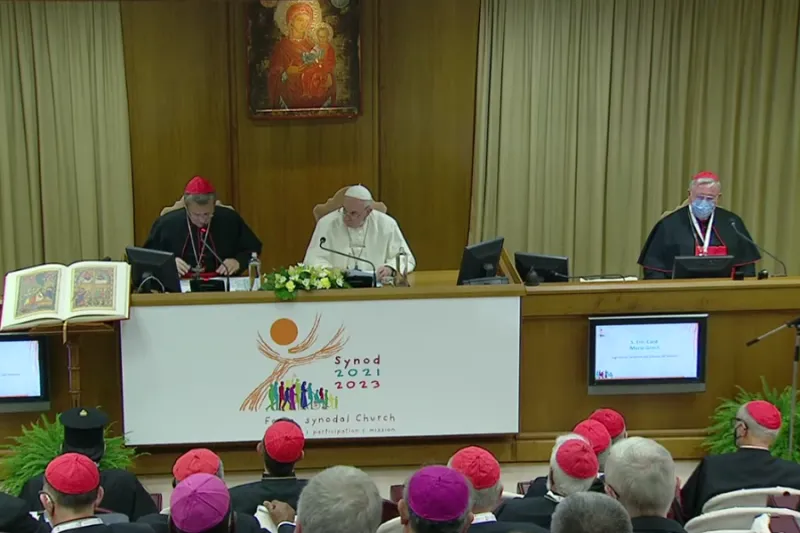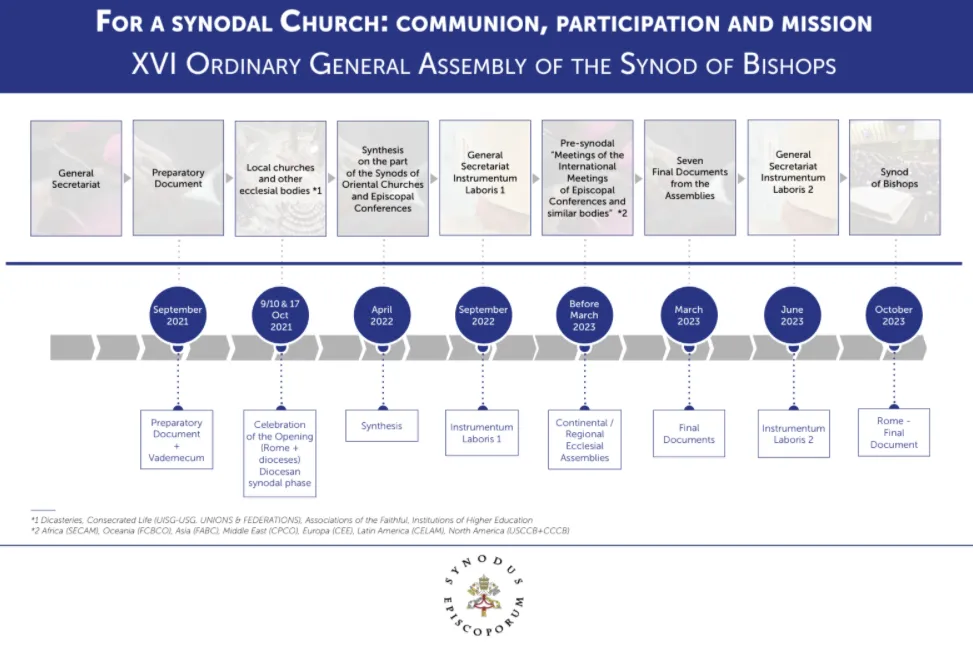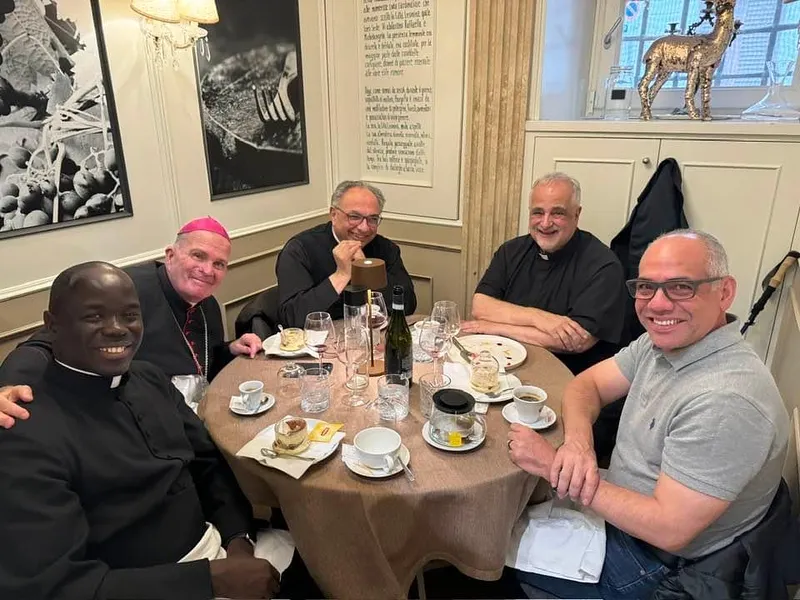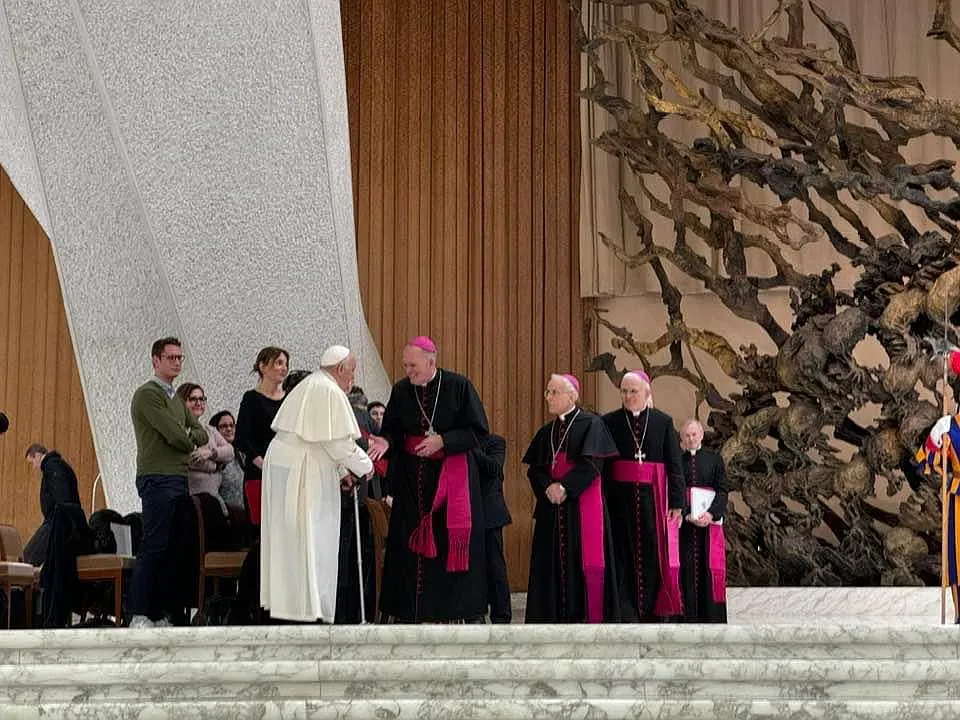
Vatican City, Oct 29, 2021 / 05:30 am (CNA).
The Vatican announced on Friday that it will give dioceses around the world more time to complete local consultations ahead of the 2023 Synod on Synodality.
The Secretariat General for the Synod of Bishops said on Oct. 29 that bishops’ conferences worldwide would now have until Aug. 15, 2022, to submit summaries of their consultations.
The body overseeing the two-year synodal process had previously asked for summaries by April 2022, six months after the diocesan phase was formally opened by Pope Francis in October.
The change means that dioceses now have 10 months to complete the consultation process, which has been described as the largest in human history.
Dioceses are likely to welcome the extension as synod organizers have urged them to include “all the baptized” in the consultation process, not only churchgoers.
A handbook for dioceses says: “Special care should be taken to involve those persons who may risk being excluded: women, the handicapped, refugees, migrants, the elderly, people who live in poverty, Catholics who rarely or never practice their faith, etc.”
The Secretariat General said on Friday: “The numerous communications we have received in these first weeks of the synodal process from the Episcopal Conferences, dioceses and eparchies are truly an encouraging confirmation of those in the Church who are committed to celebrating the first phase of the synodal process — the theme of which is For a Synodal Church: Communion, Participation, and Mission — constituted by the consultation of the People of God. For all this, we are truly grateful.”
“During this period, we have heard, over and over again and from many quarters, the request to extend the duration of the first phase of the synodal process in order to provide a greater opportunity for the people of God to have an authentic experience of listening and dialogue.”
It went on: “Aware that a synodal Church is a Church that listens, considering that this first phase is essential for this synodal path and evaluating these requests, and always seeking the good of the Church, the Ordinary Council of the Synod of Bishops has decided to extend until Aug. 15, 2022, the deadline for the presentation of the summaries of the consultations by the Episcopal Conferences, the Oriental Catholic Churches sui iuris and other ecclesial bodies.”

The Vatican announced in May that the process leading to the Synod on Synodality would open with a diocesan phase lasting from October 2021 to April 2022.
A second, continental phase will take place from September 2022 to March 2023.
The third, universal phase will begin with the XVI Ordinary General Assembly of the Synod of Bishops at the Vatican in October 2023.
In an address to Catholics in the Diocese of Rome in September, Pope Francis stressed the significance of the diocesan phase of the synodal process.
“To return to the synodal process, the diocesan phase is very important, since it involves listening to all the baptized, the subject of the infallible sensus fidei in credendo [sense of faith in believing],” he said.
If you value the news and views Catholic World Report provides, please consider donating to support our efforts. Your contribution will help us continue to make CWR available to all readers worldwide for free, without a subscription. Thank you for your generosity!
Click here for more information on donating to CWR. Click here to sign up for our newsletter.








And, so, it begins (?): permanent synods with no beginning and no end? Unlike the king in Alice in Wonderland, who clarified: ” ‘Begin at the beginning, and go on till you come to the end: then stop.”
The likely block-party bundling of legitimate “listening” together with Germania’s “synodal way” doctrinal gymnastics:“This is the way the world ends. This is the way the world ends. This is the way the world ends. Not with a bang but a whimper” (T.S. Eliot).
Or, maybe delay is a really good thing…
Some welcome fine-tuning, like (1) adding “families” to the vademecum’s (workbook) litany of sociological groups at the periphery, now to be consulted:: “…women, the handicapped, refugees, migrants, the elderly, people who live in poverty, Catholics who rarely or never practice their faith, etc. …children and youth [….] people who have left the practice of the faith, people of other faith traditions, people of no religious belief, etc.” FAMILIES, too? Yes?
And, maybe something broader, too, about (2) restored COHERENCE between faith and morals, as in the now- peripheralized “Veritatis Splendor”?
And then, of course, the recognition throughout that (3) Christ’s is a EUCHARISTIC Church, not our project-church extruded by the arc of history on the move. Like ecumenical councils, synods are what the Church DOES, not what the Church IS.
Right On!
So they want to hear from us, the only problem is; what is the mechanism for it?
If you happen to be in a diocese which is strongly opposed to anything traditional and you have a thriving group of people, including a large number of young families who travel over 50 miles each way to attend the TLM, how are their desires going to be heard? To me it would sound like if they went to the Bishop who in that particular diocese is anti tradition, do you think any letters requestiong a TLM will end up anywhere but His pnly personal, heavy duty paper shredder?
So, are the Vaticanistas admitting that 15 minutes of discussion time per diocese isn’t enough? Then again, since all of the outcome has been carved in marble, (or, better yet, jello, in order to maintain a perpetual state of fluidity), why do the world’s dioceses need any review time at all?
Too bad there is no canonical mechanism for telling the pope to “packayou and packayomama” out of town.